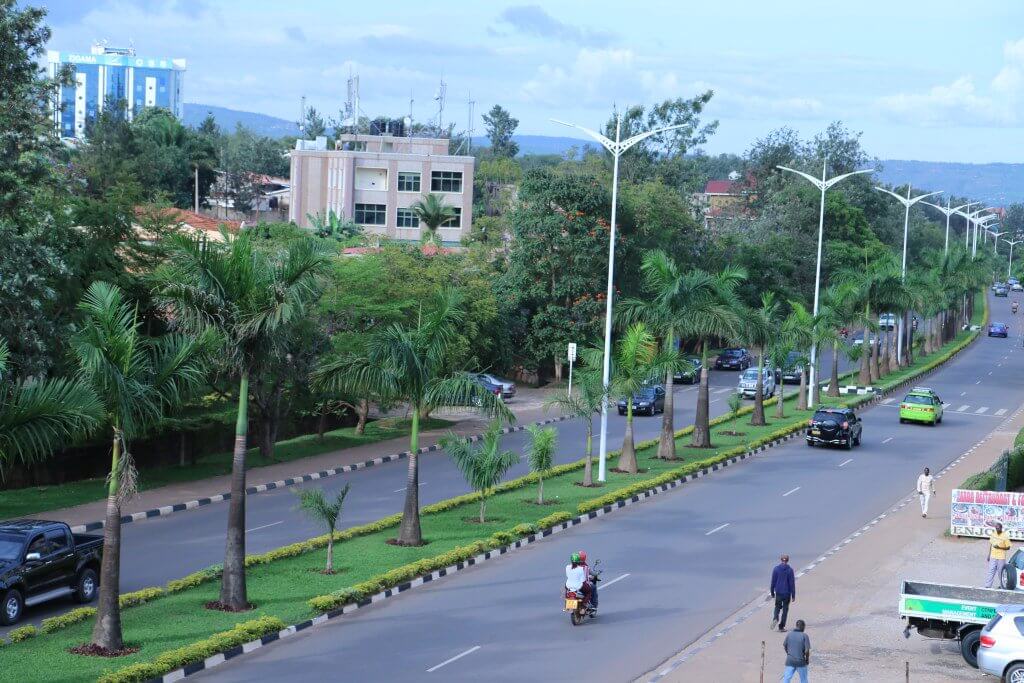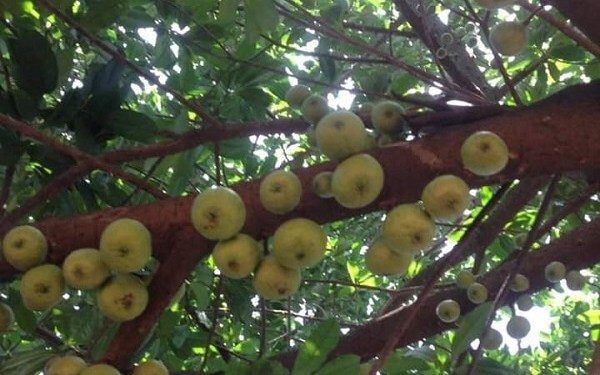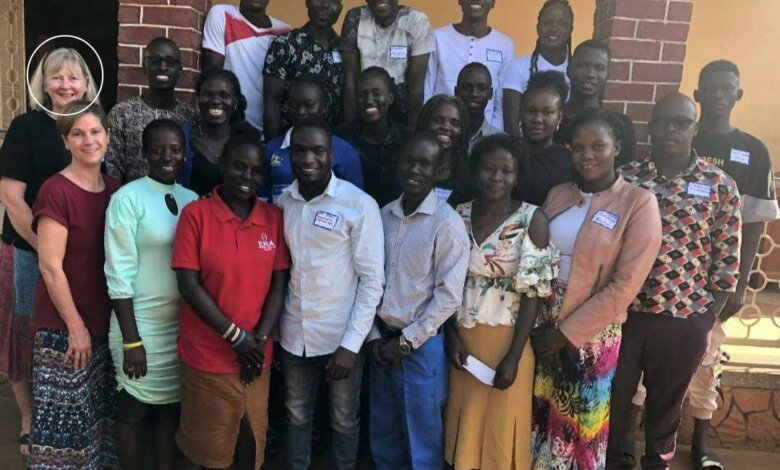
Photo: Tricia Walker (head encircled) at Jinja Outreach with Young Professionals, Uganda and sponsored students who are secondary & university graduates preparing for their careers. Their mothers are members of the Jinja women co-op. All are Acholi whose families/tribe were impacted greatly by the 20-year war of Uganda / © Young Professionals – Uganda
Tricia Walker’s work in Uganda is associated with Outreach Uganda, a U.S. based organization that was founded by Carol Davis after a life-changing visit to work in the Acholi settlement camps (refugee camps) set up during the 20-year war in Northern Uganda.
Her focus began on the women who had been abducted or escaped rebel activity and went to the Jinja area for safety. Upon the war’s ending, their villages, homes, schools, and families had been tremendously impacted and destroyed. Many of these young women missed out on their education and became mothers instead, choosing to stay in the Jinja area. Others returned to their ancestral lands in the Lamwo/Kitgum districts in the north, requiring much reconstruction.
“Since 2008, Outreach Uganda’s projects have included sponsorship of children’s education in Jinja; creating of a woman’s co-op in Jinja with 50+ members; sponsorship of children’s education in Kitgum area; start-up of a parent managed primary school (pre-school through junior secondary) now with 650+ students in Agwata (Cubu Tribe); establishment of a healthcare center in Agwata that now includes an accredited maternity hut and delivery option; creating a women’s farming co-op of almost now 100 active members; and the continuing sponsorship of students from primary through secondary/vocational school and many onto university achievement,” said Walker to TheAfricanDream.net in an interview.
The American has volunteered in various capacities and projects in Uganda since 2020. According to Walker, her first activity was to teach English as a second language in Agwata. “My most recent visit was very special since a friend of over 20 years joined me and brought her energy and skills to share,” she said.
In three years, Walker’s program in Uganda has served many locals in a variety of areas. Her recent five-week volunteering in Jinja and Agwata area of Uganda from late February through early April has been one of her most impactful.
Volunteer work in Jinja, Uganda
“During my last visit, I determined that many women in the Jinja co-op had close-up vision issues. We were able to get 150+ reading glasses, cases, and lanyards donated and distributed appropriately to the ladies using supplied eye charts. This allows the women to see both written materials and their bead work clearer with less eye strain,” said Walker to TheAfricanDream.net.
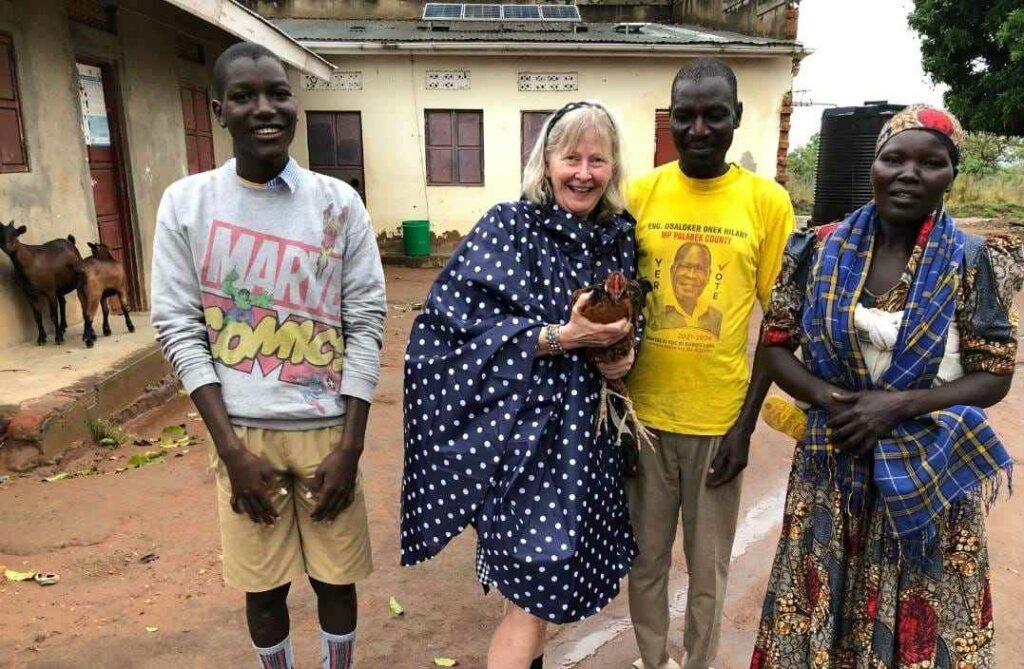
Volunteers in the exercise were also trained by an American friend of Walker’s in the necessary supplies to train 20 beneficiaries in making re-useable sanitary kits. These will be distributed to students in the Jinja and Agwata areas.
“It has been proven that the supplying of such kits in the Agwata school since 2012 has been the most effective way to keep females in their puberty in school. Distributing kits brought from the US over the years has allowed the number of females graduating from P7 (primary) to go from very few to over one-half of the class,” said Walker.
Teaching the women to fulfill this need prevents them from being dependent on kits coming from US (issue proven during the COVID stoppage of travel); allows them to address and solve their own problems; creates a small business opportunity for the women; “and allows us to dedicate our baggage allowance/budget to be used for other needs.”
As part of the volunteer work in Jinja, English training classes were also held for the local women, dividing them into beginner, intermediate, and advanced groups. Walker compares them to “sponges” wanting to improve their English skills for their own benefit and to educate their own children. “I incorporate a variety of teaching materials with Scrabble marathons being one of their favorite and liveliest,” said Walker.
Many of the children of these women have now reached secondary and university levels despite the many challenges, thanks to the dedicated sponsors from the US that help defray the cost of education. As a follow-up, a workshop was held for these rising young professionals to address interviewing skills, CV development, English improvement, and vocational of career options. “It was a great blessing to have two Acholi professionals join us to be able to share their experiences (one had been abducted 3 times during the war) and provide great guidance,” said Walker.
The team took multiple copies of paperbacks with Africa themes to increase the accessibility of reading materials to both the women and the students. A lending library along with some “book clubs” were set up via WhatsApp to encourage discussion and accountability.
Volunteer work in Agwata, Lamwo District
In Agwata, Walker’s team provided teaching aids for teachers of a variety of subjects based on the needs uncovered during the previous visit. “Due to the remoteness of the school (no electricity, running water, internet service, etc), the teachers are very limited in the manner in which they can convey information,” said Walker. Teaching posters, resource books, training sessions, and other materials were distributed with the associated training.
“We were determined to help the teachers reach each student despite the class sizes being 75-110 per classroom and having limited textbooks and other student resources.”
During the 2022 post-COVID visit, Walker’s team with the teachers of the students returning from over a 2 year school shutdown, concluded that students between primary 3 and 5 had a major reading problem. These students were without the benefit of any English reading, listening, or visuals during this entire time.
“For that reason, we went back armed with training in phonics and spent the majority of the time with the teachers and students introducing this method of learning to read. Again, both students and teachers are like sponges desiring to learn. They have continued to develop this as part of their remediation efforts for the students catching up with their English skills,” said Walker.
According to Walker, past work has proven that the skill of report writing has helped the students perform better on their critical nation tests taken at the end of their P7 year, all in English. Very intentional work was done with upper level primary classes (P6-P7) to help them (and the teachers) hone the report writing process (research, outline, drafting, editing, and final copy development).
“This time, cross-curricular report writing was utilized to show how the English and other core subject teachers can team-teach a holistic activity such as report writing. The significant improvement of the test results over the last three years leads us to believe that this focused effort is paying off.”
As part of their volunteer service, Walker’s team offered reading eyewear to the women’s farming co-op members and the teaching staff. “It was always so delightful to witness a pair of glasses bring such smiles when the wearer could see clearly for the first time!!” They also distributed 100+ reusable sanitary kits to remote schools and donated solar charged projector that “allowed us to take a selection of African themed movies for the enjoyment of both students and teachers. It was such an honor to witness the delight and awe of them seeing a movie for the first time,” said Walker.
They also donated used Chromebooks from Walker’s school district in calvert County, Maryland to some sponsored university students and be able to set up a computer lab at the Agwata school. This is the first exposure of both teachers and students to computer usage (solar powered), allowing them to become familiar with basic operations and utilization without the benefit of the internet. “As we are able to transport more into the country, the set-up of computer labs will expand.”
Just as in Jinja with the women and older students, team included an awareness of human trafficking for the the Agwata women in the co-op and teachers. “Again, many stories were shared, and they were so pleased to be armed with an understanding of the activity they and their children were all possible victims of,” said Walker.
About Tricia Walker
Walker spent 15 years with the Dupont Company, a Fortune 500 company, in the area of accounting, systems analyst, technical specialist and industrial sales representative, and business management. She then moved into the non-profit arena after acquiring her Masters in managing NGOs. She has enjoyed being a consultant for 10 years by helping non-profit start-ups or re-structures and managing projects from planning through implementation stages.
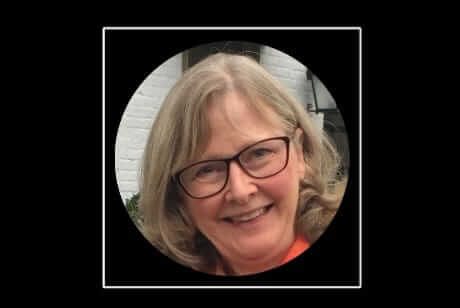
Her next career jump was into education after she completed another Masters in secondary mathematics. She worked for 15 years with high school students who struggled with math to develop confidence by determining their unique way to learn a personally difficult subject. After her 5th child launched out of the home nest, she decided it was time for another major change.
She earned state and international certifications to teach English as a second language (ESL). By nature, she is open to change and new adventures. She loves to travel, meet interesting people, and respond boldly in the face of challenges involved.
Source: TheAfricanDream.net
Oral Ofori is Founder and Publisher at www.TheAfricanDream.net, a digital storyteller and producer, and also an information and research consultant.

